Every lab needs to be equipped with essential equipment. Out of all I would say power supply is most important since it powers up the projects. Batteries, DC adapters can do fine job but as demand grows and project gets bigger a professional and adjustable power supply becomes a necessity. To cater that I have designed an adjustable 50V / 5A power supply with a variable output from 0V to 50V and adjustable current limiting from 0A to 5A. Most simple power supplies cant get the output to come down to exactly 0V or 0A. But in this circuit, the differential amplifiers have a negative power supply rail at (-3V), which can pull the output down to exactly zero.
CIRCUIT DIAGRAM OF BENCH POWER SUPPLY:
WORKING:
The power supply relies upon two differential amplifiers made out of Transistors T1 to T6. The first one being responsible for controlling the output current limiting. The second differential amplifier controls the output voltage. They both are driven by the reference voltage created by D5 and D6. The use of zener and a normal diode is to compensate for thermal drift of reference voltage generator. This is because they both have opposing thermal coefficients.
VOLTAGE CONTROL CIRCUITRY:
The voltage control circuitry is created from Transistors T4,T5 and T6. This works by measuring the differential voltage on base terminals of T4 and T5. One terminal is supplied with reference voltage, and the other terminal with some of the output voltage. The reference voltage created by diodes D5 and D6 is around 15.4V. Hence the differential amplifier must amplify the voltage difference by 3.4 times to match the 50V output. This is done by the voltage divider (R23,P3) connected to the inverting terminal of this differential amplifier, setting the gain to 3.4 times of input signal.
When tweaking the power supply, you must set potentiometer P2 to its upper most level. Then fine tune the maximum output voltage to 50V by P3. Since the current sensing resistor (R24) is in a low side configuration, the differential amplifier must correct for the voltage drop it makes when power supply is loaded. This is why the reference voltage generator is connected to the (-) terminal of the power supply and not ground terminal. By connecting the reference voltage generator in such a way, it allows it to drift up or down by the same amount of voltage the current sensing resistor creates as a voltage drop. Therefore it keeps the output steady through the load.
CURRENT LIMITING CIRCUITRY:
The current limiting circuitry is comprised of Transistors T1,T2 and T3. This works by measuring the voltage drop created by current sensing resistor and comparing it to a given reference voltage created by R11 and P1. I actually suggest replacing R11 with a 220k trimmer and fine tuning the maximum current limit to match your requirements.
As it is, the protection is set to enable at 5.3A. With an adjustable value for R11, you can set the protection at any level up to maybe 6-7A without compensating the circuit for increase in power. When the protection is ON, T3 drops the voltage at its collector, thus creating an appropriate potential difference through the diode D7. At this point it starts stealing some of the biasing voltage of T4. By dropping the base voltage of T4, output voltage drops sufficiently to keep the current through the load constant.
GERBER FILES:
A big thanks to Morne Stander for designing PCB for this circuit and sharing it with the community. You can download the Gerber files below
Hope this project will be useful to you guys 

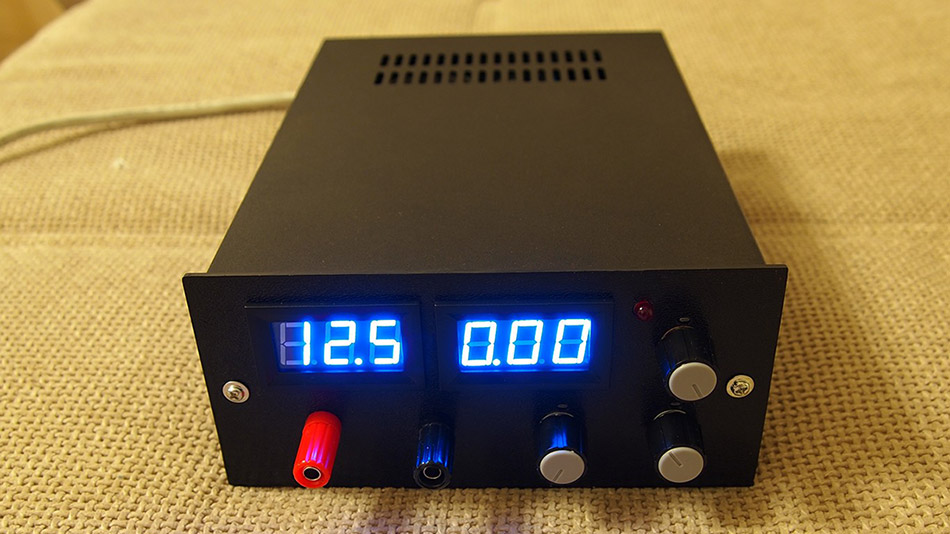
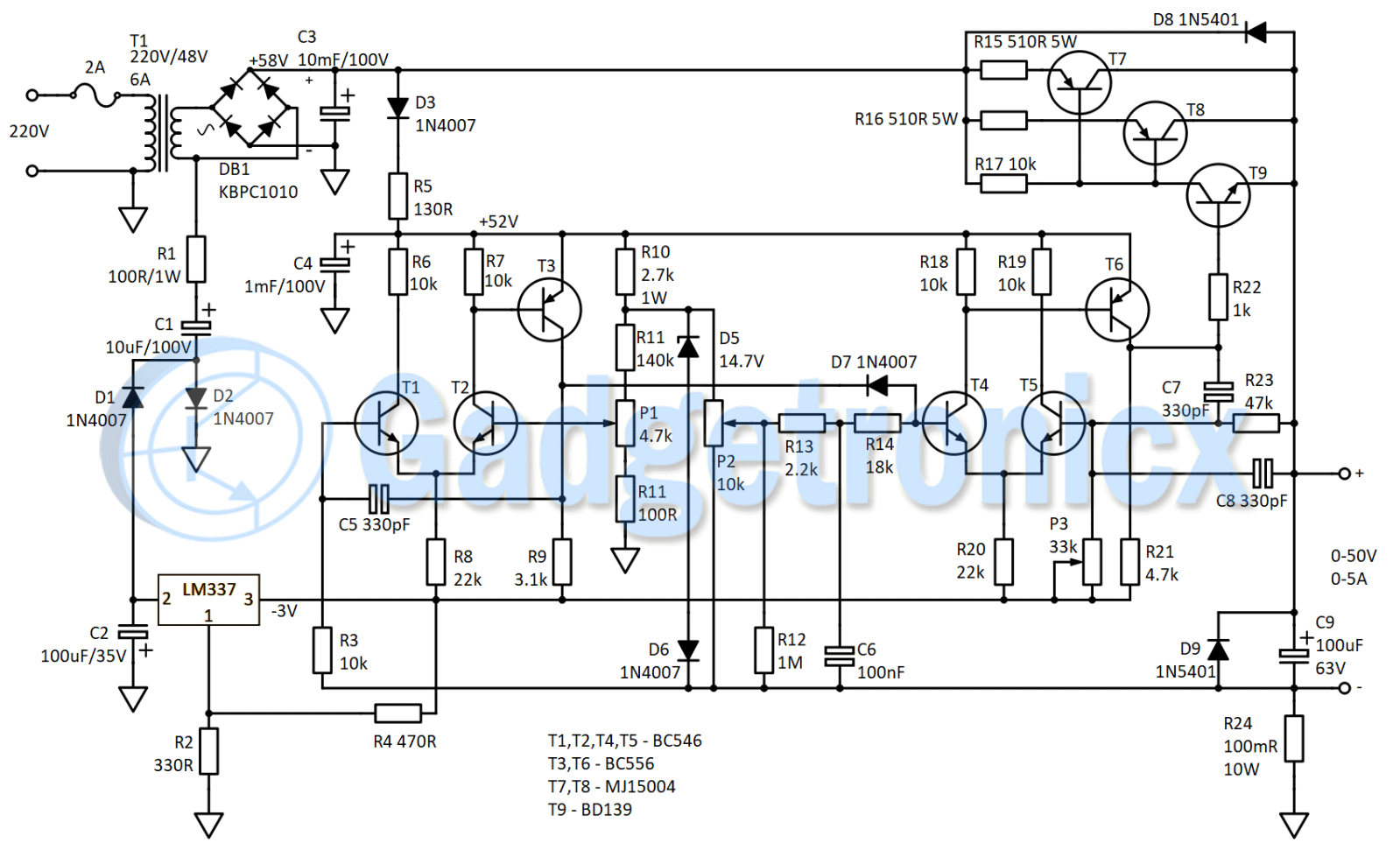
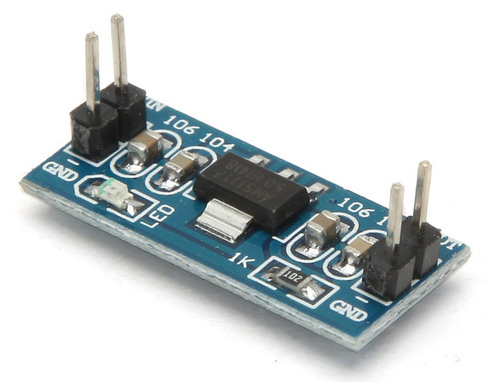
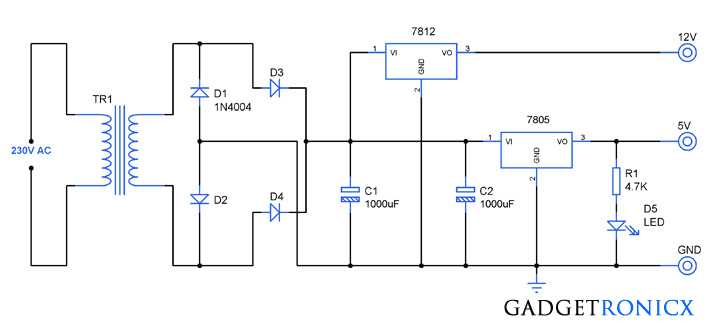
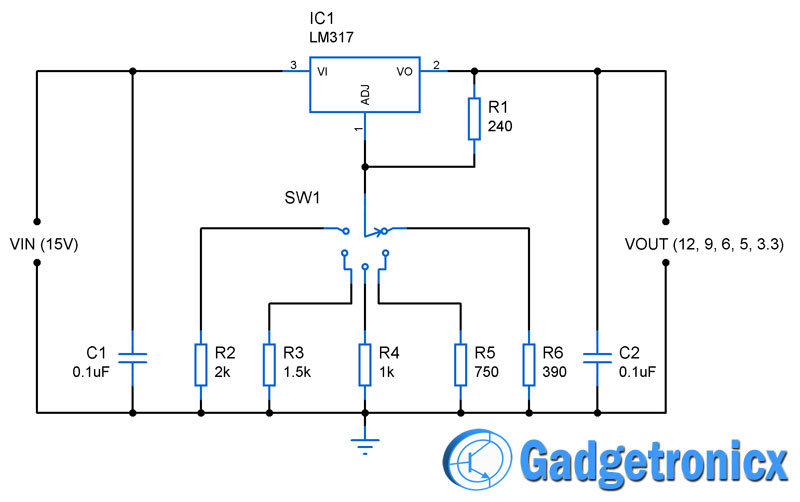
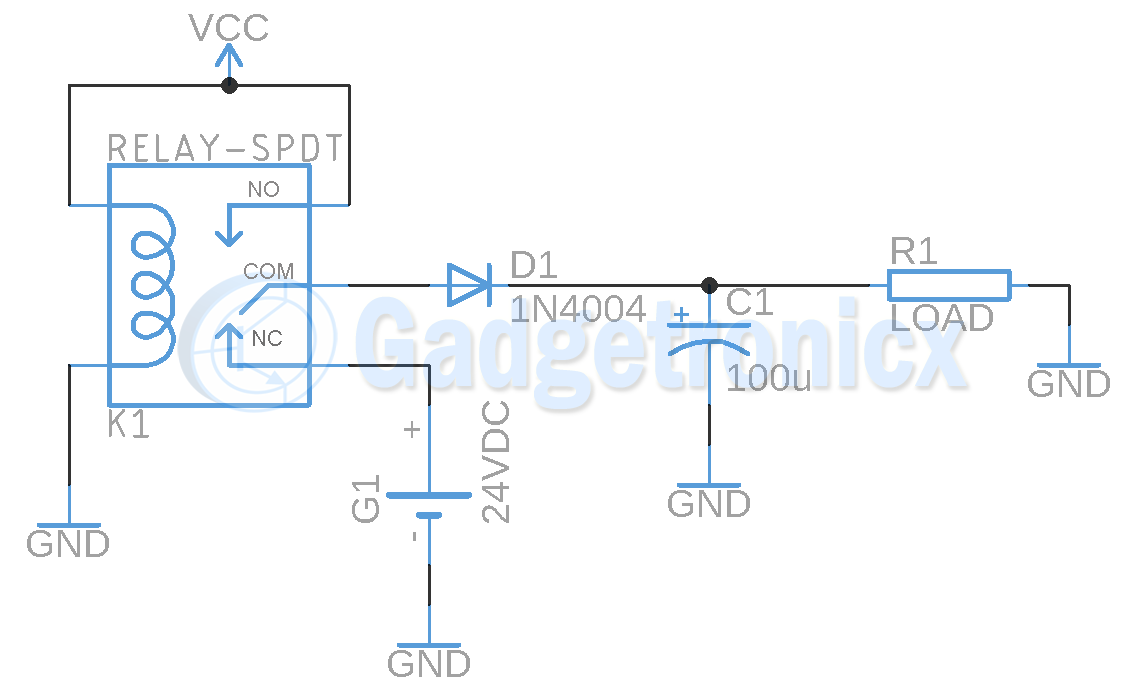
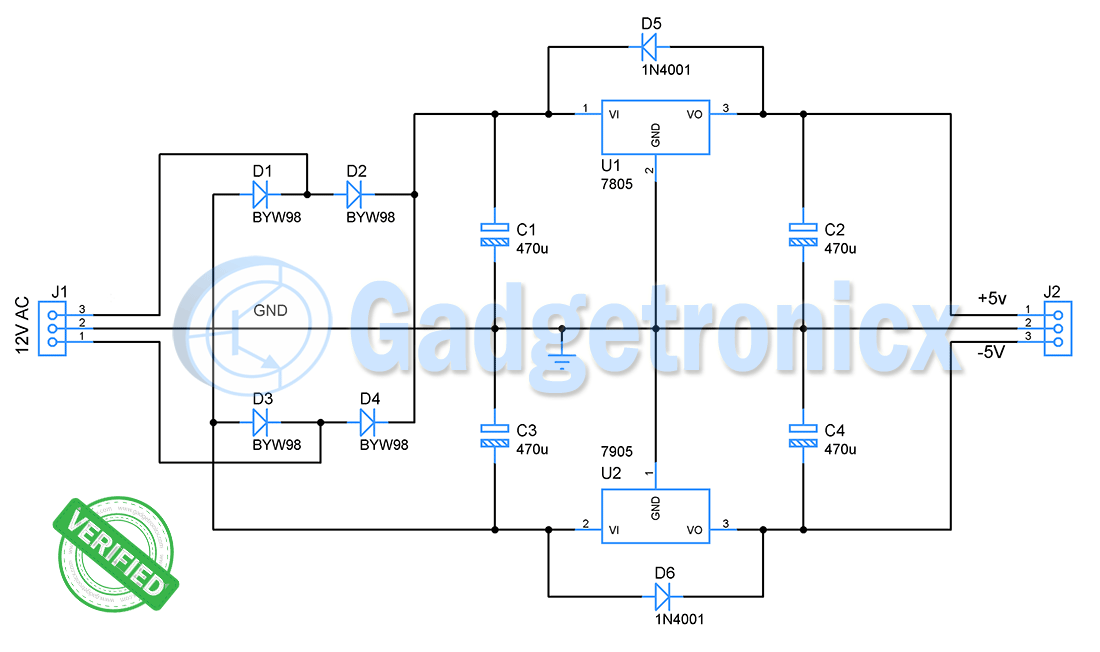
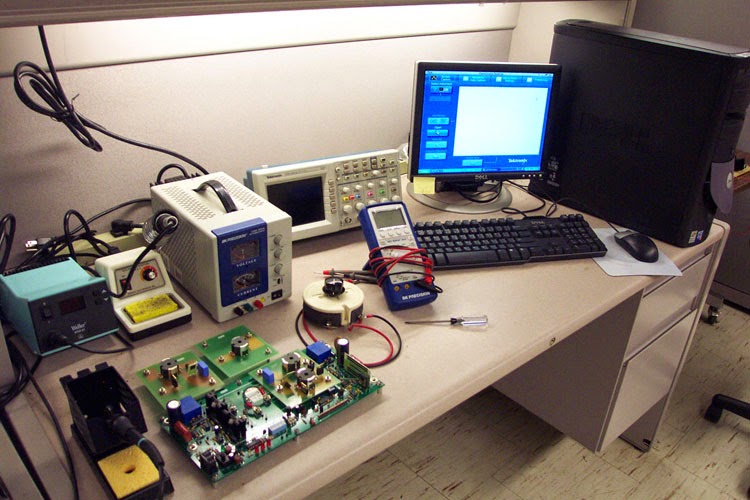
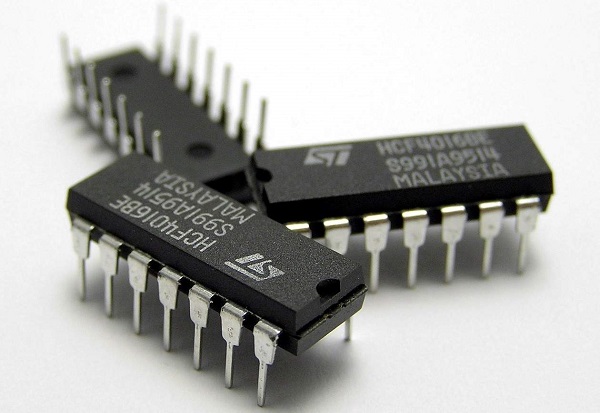
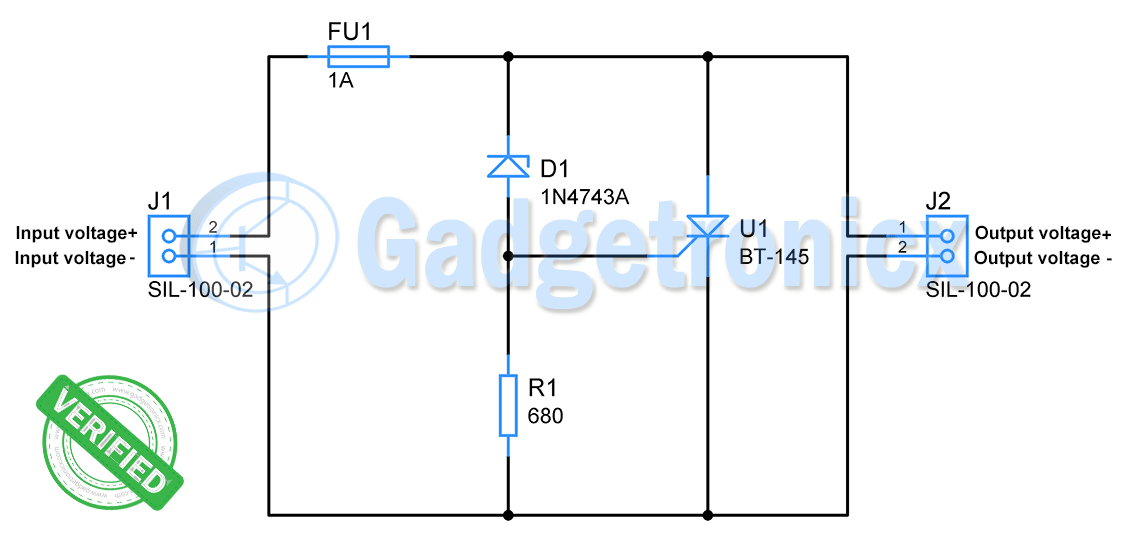
Hi, I intend to use the circuit with a DC power supply. Assuming i omit the rectifier what voltage should i feed the circuit? Does it have to be 58v exactly or would 2v one way or the other be okay? Should i remove or change any other parts?
Transformer primary is shown connected to the ground. Negative output terminal also goes to ground through R24 (100mR). Thus users can be electrocuted, equipment connected to the supply may be damaged and/or supply may also be damaged. This connection may be omitted or a small cap may be inserted between T1 and the ground.
How does it even work? If you use 5A, this current will generate 1274 volts on R15 and same voltage on R16 (half the current times the resistance)…….
2.5A x 510ohms = 1275V !
Hi ,
Do you a BOM for the whole project incl. housing,display and buttons etc.
Thanks
Aidan
To get 10 or 15 Amp what to do with R24? Can I use on place of T7, T8 higher current transistor and add two more? Regarding R24, Can I install 3 instead of 1 at 10w? R24 reference is 100mR is it mili ohms, 100ohms or….
bonjour, une chose me semble illogique, vous mettez 2 r de 510ohm en série avec les transistors de puissance mais à 5a de débit il y aura 2.5a²x510ohm soit une chute de tension impossible……ou est ce 510milliohm
Thank you for this project.
But please help me for how to build variable double power supply (+24v) -o- (-24v).
Make 2 of these with separate transformer secondaries and put them in series and use a stereo pot
bonjour, tout dépepend de la puissance de sortie sinon le LM317 ET LM337 sont des circuit simple pour faire ce que vous chercher, suffit de prendre les potentiomètre réglable couplet (style stéréo)
Hi , if anyone can do a gerber file from a circuit for comunity , no cost , i will provide some schematics for elektor precision modified with pic and lcd ammeter/voltmeter. my contact is ion.marius.dorinel@ gmail.com have a great day!
no esquematico tem R17, porem na pcb nao consigo encontralo ?